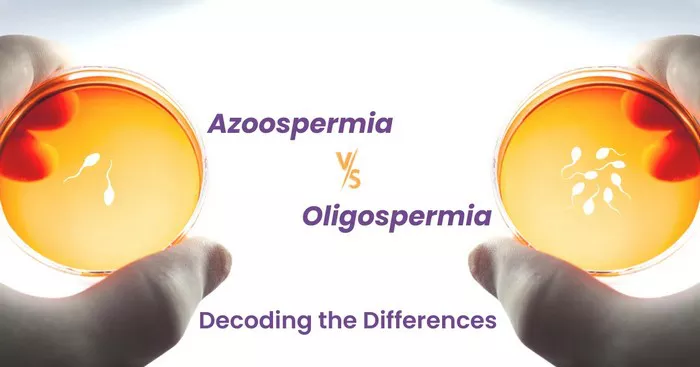Infertility affects millions of individuals and couples worldwide, posing significant challenges to starting or expanding a family. Among the various causes of infertility, oligospermia and azoospermia are two conditions that can impact male fertility. In this comprehensive guide, we will delve into the definitions, causes, symptoms, diagnosis, treatment options, prognosis, lifestyle tips, and support resources related to oligospermia and azoospermia.
Definition and Overview
Oligospermia, also known as oligozoospermia, is characterized by a low sperm count in the ejaculate. Typically, a sperm count of less than 15 million sperm per milliliter of semen is considered to be low. Azoospermia, on the other hand, refers to the absence of sperm in the ejaculate. This condition can be further categorized into obstructive azoospermia, where sperm production is normal but blocked from reaching the semen, and non-obstructive azoospermia, where there is a problem with sperm production itself.
Causes
Several factors can contribute to oligospermia and azoospermia:
1. Hormonal imbalances: Disruptions in hormone levels, such as low testosterone or elevated levels of follicle-stimulating hormone (FSH) or luteinizing hormone (LH), can affect sperm production.
2. Genetic conditions: Certain genetic abnormalities, such as Klinefelter syndrome or Y-chromosome microdeletions, can impair sperm production or maturation.
3. Infections: Sexually transmitted infections (STIs) or inflammation of the reproductive organs can damage sperm production or block sperm ducts.
4. Lifestyle factors: Habits like smoking, excessive alcohol consumption, drug use, and exposure to environmental toxins can negatively impact sperm quality and quantity.
5. Medications: Some medications, including certain antidepressants, antihypertensives, and anabolic steroids, may interfere with sperm production.
6. Reproductive organ issues: Structural abnormalities, such as varicoceles (enlarged veins in the scrotum) or ejaculatory duct obstructions, can impede sperm transport.
Symptoms
While oligospermia and azoospermia may not always present noticeable symptoms, individuals may experience infertility or difficulties conceiving. Other potential signs include sexual dysfunction, such as erectile dysfunction or reduced libido, and physical abnormalities of the reproductive organs.
Diagnosis
Diagnosing oligospermia and azoospermia typically involves a comprehensive evaluation by a fertility specialist. This may include:
1. Semen analysis: A semen sample is collected and analyzed to assess sperm count, motility (movement), and morphology (shape and size).
2. Blood tests: Hormone levels, such as testosterone, FSH, and LH, may be measured to evaluate hormonal function.
3. Imaging studies: Ultrasound or other imaging techniques may be used to identify structural abnormalities in the reproductive organs.
Treatment Options
Treatment for oligospermia and azoospermia depends on the underlying cause and the individual’s reproductive goals. Options may include:
1. Lifestyle modifications: Adopting a healthy lifestyle, including regular exercise, balanced nutrition, avoiding tobacco and excessive alcohol, and managing stress, can improve sperm quality.
2. Hormone therapy: Supplemental hormones may be prescribed to correct hormonal imbalances and stimulate sperm production.
3. Surgical interventions: Procedures such as varicocele repair or sperm retrieval (for obstructive azoospermia) may be recommended to restore fertility.
4. Assisted reproductive technologies (ART): Techniques like in vitro fertilization (IVF) or intracytoplasmic sperm injection (ICSI) can help overcome infertility by directly injecting sperm into an egg for fertilization.
Prognosis
While oligospermia and azoospermia can present significant challenges to fertility, many couples are able to achieve pregnancy with appropriate treatment and support. Success rates vary depending on the underlying cause and the chosen treatment approach. Seeking care from a qualified fertility specialist and adhering to treatment recommendations can improve the chances of success.
Lifestyle Tips
In addition to medical interventions, individuals can take proactive steps to optimize their fertility health:
1. Maintain a healthy weight: Obesity can negatively impact fertility, so aim for a BMI within the healthy range.
2. Avoid harmful substances: Quit smoking, limit alcohol consumption, and avoid recreational drug use to protect sperm quality.
3. Manage stress: Practice relaxation techniques such as meditation, yoga, or deep breathing exercises to reduce stress levels.
4. Eat a balanced diet: Consume a variety of nutrient-rich foods, including fruits, vegetables, whole grains, lean proteins, and healthy fats, to support reproductive health.
Conclusion
In conclusion, oligospermia and azoospermia are complex conditions that require a thorough evaluation and personalized treatment approach. By understanding the causes, symptoms, diagnosis, and treatment options, individuals and couples can take proactive steps to address male infertility and pursue their dreams of building a family. Remember, you’re not alone on this journey, and support and guidance are available to help you navigate the challenges of infertility.
Related Topics:
Emergency Guide: Reasons of Infertility After Miscarriage
Penn Fertility’s IVF Success Rates: Everything You Need To Know



























